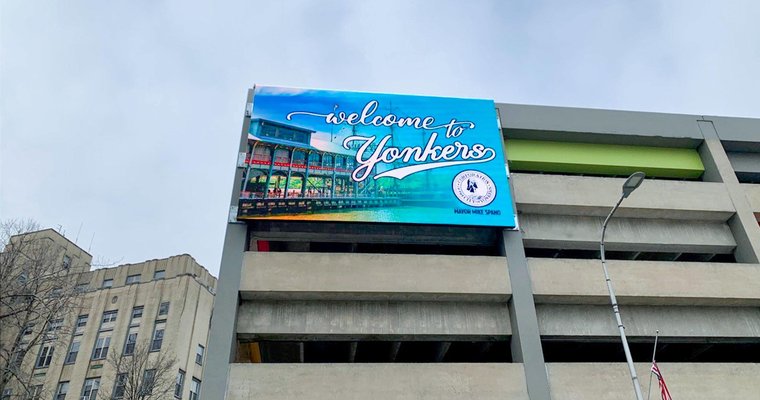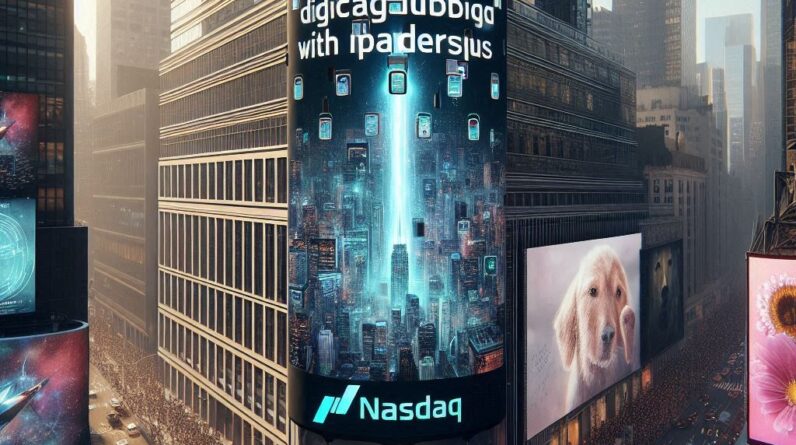
[ad_1]
Serving up traditional Yemeni coffees and pastries (baked fresh on-site each day), the mission of Socotra Coffee House is to bring beloved traditions to the local market while putting a smile on people’s faces, while also utilizing digital signage to the fullest.
 Digital menu boards at Socotra Coffee House, which serves traditional Yemeni coffees and pastries. Image credit: Daniel Brown.
Digital menu boards at Socotra Coffee House, which serves traditional Yemeni coffees and pastries. Image credit: Daniel Brown.
Socotra Coffee House celebrated its grand opening earlier this week, and is already making a splash in the Ann Arbor coffeeshop scene, a fiercely competitive market honed by decades of serving thousands of students from just up the road at University of Michigan and Eastern Michigan University.
Serving up traditional Yemeni coffees and pastries (baked fresh on-site each day), the mission is to bring beloved traditions to the local market while putting a smile on people’s faces, according to Sam Al Rabeei, co-founder and manager, who sat down today for an in-person interview with this publication to discuss how technology, digital signage and tradition all fuel the city’s newest coffee scene.
 |
Socotra blends digital technology alongside traditional artwork to celebrate the culture and heritage of Yemen and its coffee growers. Image credit: Daniel Brown. |
A brand steeped in tradition
“Socotra is an island in Yemen,” Al Rabeei said. “There’s species in nature right there that you can’t find anywhere else in the world. So right now, we’re trying to bring awareness to it so that people can find out more about it and try the traditional coffee.”
History and honor for cultural tradition is central to the brand identity for Al Rabeei and his partners, who want to honor the cultural traditions of Yemen by bringing them to a fresh new audience. “There’s a city called Mocha, and that was where it originated first, in South Yemen,” Al Rabeei said, adding that this is where the name for Mocha coffees comes from. “And then through time it spread, all the way to Africa and Europe.”
Some coffee aficionados make claims for an origin point in Africa, such as Ethiopia, but Al Rabeei says Yemen was the true cradle of the almost universally beloved beverage, which tastes best when brewed from Arabica beans: “It has more flavor, more texture, you can taste the coffee better.”
It’s not just the coffee, but the décor, a mix of art murals and photographs of famous historical and architectural sites in Yemen, including the castle of Dar al-Hajar.
 |
Just a few of the baked goods available for coffee lovers at Socotra. Image credit: Daniel Brown. |
A business born in passion
His passion for the beverage was part of what inspired the journey to co-founding the business in his native home town. “I grew up with coffee,” Al Rabeei said. “Every day, we’d drink coffee. We’d go all the way to Dearborn because it [traditional Yemeni coffee] is very popular down there.”
When asked for his personal favorite, the coffee master didn’t hesitate. “Mofowar,” Al Rabeei answered. “So, it’s like a medium roast with cardamom, cream and cinnamon — it’s very good in the morning! You get a pastry, a Honeycomb in the morning, and it’s very good.” He added that his favorite morning pastry is the honeycomb, also known as khaliat nahl.
Traditional coffee spots would appear closer and closer, including Canton, but when Al Rabeei heard someone was trying to open a Yemeni coffeeshop in downtown Ann Arbor, he knew it was time to act. “I grew up in Ann Arbor, so I was like, cool for you — let me start one here, because this is my city.”
This is the secret to Socotra’s unique model: it imports its Arabica coffee beans from Yemen. Al Rabeei said Arabica is preferred over Robusto, in part because Arabica has better body and flavor.
“We use traditional coffee beans. That’s the only way you can taste the actual coffee. And this is the point, why we opened this [coffee shop] is to spread awareness about the different traditional types of coffee that we have, including light roast, medium and dark.”
The beans are custom-roasted locally by a friend of Al Rabeei’s. “He roasts it every week, or every couple days, however busy we are… And then every week we see — we see how customers like it, we test it ourselves,” he said.
 |
A sampling of the custom-roasted, imported coffee beans used by Socotra. Image credit: Daniel Brown. |
Simplify, simplify
With so much respect for tradition and passion for coffee and baked goods, how did Al Rabeei jump on the technology and digital signage side right at the launch?
“I just wanted something basic, something that people can see and is very neat,” he said, designing the left-side digital menu panel for traditional flavors and the right-side unit for more modern options. “So that’s very easy for people to see.”
Having a vision and keeping things simple is key, in business and components of it, Al Rabeei said, explaining that he used the Canva online software and its AI-powered art tools to help design the content of the digital and physical menus in the store. Though he could have hired an integrator to help select, install and deploy the signage, he wanted to keep things simple in order not to delay his vision.
“There were a lot of ways I could have done it, I could have hired a company to do the signage and stuff, but it’s very simple — you can use an HDMI or use USB, and that’s why I went for USB, I just plugged it in and fired it up,” he said.
Customers have been very complementary so far of the displays. “They like it. It’s very neat, it’s very simple, it’s easy to turn on — you just literally turn it on and go to the media player. It never cuts out, it’s reliable, even the TVs that I got weren’t too expensive, you don’t need a really expensive, new TV or anything,” he added, noting that he selected a model from Insignia for the two vertically mounted digital menu boards. “I just put it up there, and everything was simple.”
For customers who prefer traditional printed menus, Al Rabeei used Canva to resize the menu content and produced laminated copies.
When choosing hardware and software for the point of sale, it’s the same principle of simplification for Al Rabeei. “The technology’s out there. You can find anything on technology. Don’t be intimidated. Just use something, see if you like it; if it doesn’t work, there’s always room for change.”
 |
Traditional music can be heard playing in seating areas like this one, which also features a honeycomb-shaped table reminiscent of Yemen’s famous traditional pastry. Image credit: Daniel Brown. |
People and purpose
“My favorite part is seeing people’s faces when they try new stuff,” Al Rabeei said. “It makes me happy for people to try something that I’ve been trying my whole life.”
Was there any advice for other young entrepreneurs?
“You have to have an idea,” he replied, “a vision in your head. Make sure that you know what you want to do. I don’t think anything can stop that. It’s the same thing with this — I looked at this place, and it was empty, and I was like, this is a really good spot. There needs to be something for this neighborhood.”
What’s the secret to finding a great location? “The neighborhood,” he answered without hesitation. “You have to have a good neighborhood and people that will support you. I have a lot of people that will walk around and then they say, ‘oh, finally, a coffeeshop in town.'”
“Plus, you have traffic, and good parking, and all that. It’s close to the University. It’s good atmosphere, people, everything.”
When customers comment on the positive energy of the location and staff, Al Rabeei credits it to the company culture. “The energy — I feel like I want it to be for everybody,” he said, adding that the passion and hospitality behind custom-roasted coffee and pastries and snacks made onsite is already creating local enthusiasm and repeat customers. “We want to keep it traditional and everything homemade.”
When asked if he had any burning messages for the world after a successful grand opening, Al Rabeei kept it simple (true to form): “Give everything a try. Give Yemeni coffee a try, and I don’t think you’ll be disappointed.”
 |
A sample of Yemen’s traditional honeycomb pastry or khaliat nahl. Image Credit: Daniel Brown. |
Editor’s Note: At the end of our interview, I tried a cup of Mofowar and some honeycomb pastry, both of which were outstanding. The coffee had a bold flavor, strong but not overpowering, and tempered by the sugar and cream, with a pleasant hint of cinnamon. The honeycomb pastry was light and buttery, with a savory cream cheese filling offset nicely by the sweetness of the honey drizzle.
Daniel Brown is the editor of Digital Signage Today, a contributing editor for Automation & Self-Service, and an accomplished writer and multimedia content producer with extensive experience covering technology and business. His work has appeared in a range of business and technology publications, including interviews with eminent business leaders, inventors and technologists. He has written extensively on AI and the integration of technology and business strategy with empathy and the human touch. Brown is the author of two novels and a podcaster. His previous experience includes IT work at an Ivy League research institution, education and business consulting, and retail sales and management.
[ad_2]
Source link






